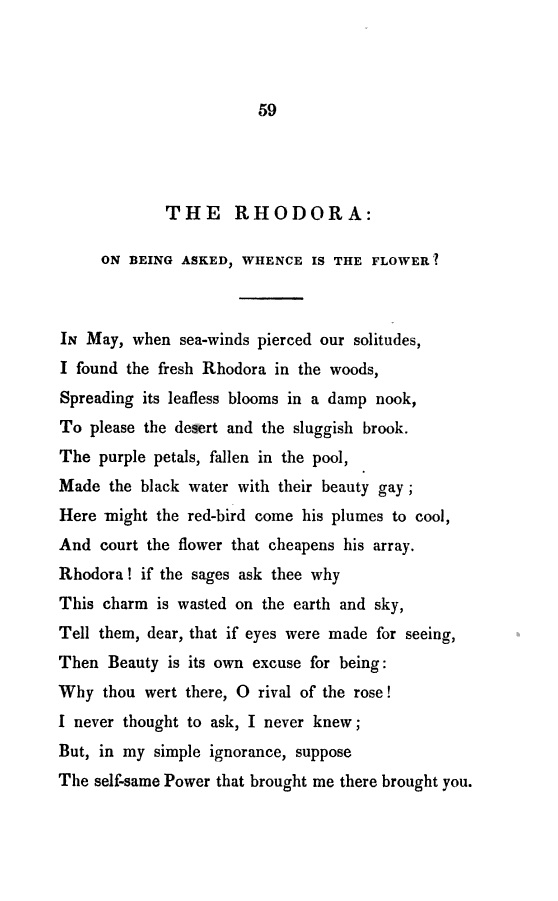 |
| RWE 1847 |
Thursday. P. M. — To Ledum Swamp and Lee's Cliff.
Eleocharis tenuis in bloom, apparently the earliest eleocharis.
The rhodora at Ledum Swamp is now in its perfection, brilliant islands of color.
Eriophorum vaginatum, how long?
Ledum out apparently two or three days.
Andromeda Polifolia out, how long?
Tall swamp huckleberry just budded to bloom.
Do I not hear the nuthatch note in the swamp?
Do not detect the scheuchzeria there yet.
The air is full of terebinthine odors to-day, — the scent of the sweet-fern, etc.
 |
| May 26, 2019 Moss Ledge |
See a flock of cowbirds, the first I have seen.
Cows in water, so warm has it got to be.
Geranium (how long?), behind Bittern Cliff, and wild pink.
Pitch pine pollen at Lee's.
Cherry-birds.
Ascendant potentilla abundant, how long?
Juniperus repens pollen, how long ?
Interrupted fern pollen [sic].
The dicksonia fern is one foot high, but not fairly unfolded.
The tender white-downy stems of the meadow saxifrage, seen toward the westering sun, are very conspicuous and thick in the meadows now.
A purple finch's nest in one of our firs.
H. D. Thoreau, Journal, May 26, 1859
The rhodora at Ledum Swamp is now in its perfection, brilliant islands of color. See May 17, 1853 (“The rhodora is peculiar for being, like the peach, a profusion of pink blossoms on a leafless stem. This shrub is, then, a late one to leaf out.”); May 17, 1858 ("Rhodora at Clamshell well out.”); May 18, 1853 ("The rhodora is one of the very latest leafing shrubs, for its leaf-buds are but just expanding, making scarcely any show yet, but quite leafless amid the blossoms."); May 18, 1855 ("Rhodora; probably some yesterday."); May 18, 1856 ("The rhodora there [Kalmia Swamp] maybe to-morrow. Elsewhere I find it (on Hubbard’s meadow) to-day. "); May 18, 1857 ("Pratt says he saw the first rhodora . . . out yesterday"); May 19, 1854 ("The rhodora is late, and is naked flowering."); May 27, 2016 (“Kalmia in prime, and rhodora.”); May 31, 1857 (“Rhodora now in its prime.”).
See a flock of cowbirds, the first I have seen. See September 6, 1858 (“To Ledum Swamp. Going over Clamshell Plain, I see a very large flock of a hundred or more cowbirds about some cows.”); August 25, 1855 (“They keep close to the cow’s head and feet, and she does not mind them; but when all go off . . .at my approach, the cow (about whom they were all gathered) looks off after them for some time, as if she felt deserted.”).
Cows in water, so warm has it got to be. See July 12, 1857 (“It is exceedingly sultry this afternoon, and few men are abroad. The cows stand up to their bellies in the river, lashing their sides with their tails from time to time.”).




No comments:
Post a Comment